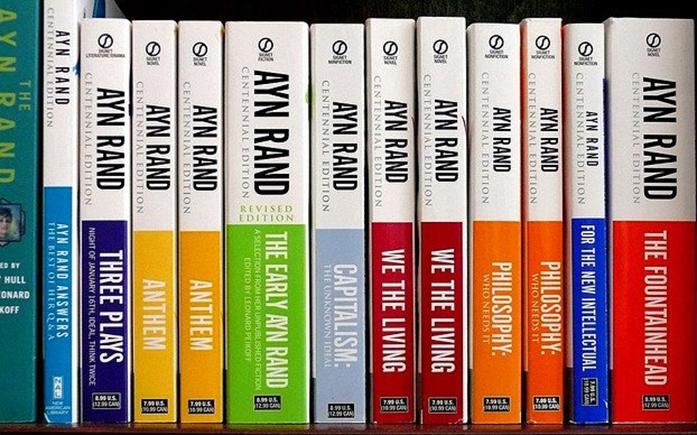John Higgs, in his 2015 book Stranger Than We Can Imagine: An Alternative History Of The 20th Century, writes about the influence of Russian-American Ayn Rand on the fundamentalists’ approach to personal liberty on the philosophy of American politicians and institutions.
Rand’s list of neoliberal political admirers includes Ronald Reagan and Alan Greenspan. The latter, who spent 19 years as Federal Reserve chairman, was a member of Rand’s inner circle.
However, her most important currently influential political admirer is House Speaker Paul Ryan, who stated in 2005: “I grew up reading Ayn Rand, and it taught me quite a bit about who I am and what my value systems are, and what my beliefs are. It’s inspired me so much that it’s required reading in my office for all my interns and my staff. We start with her longest and last novel, Atlas Shrugged.”
Rand did not believe that concern for the well-being of others should limit personal liberty. Her individualist philosophy, objectivism, promoted what she called “the virtue of selfishness.” She viewed her mission as the establishment of a new, post-Christian morality.
She made this clear in a 1959 CBS television interview with Mike Wallace when he asked her this question:
“You are out to destroy almost every edifice of the contemporary American way of life, our Judeo-Christian religion, our modified government-regulated capitalism, our rule by majority will. Other reviews have said you scorn churches and the concept of God. Are these accurate criticism?”
Rand responded, “Yes. I am the creator of a new code of morality.”
Ryan is a committed disciple of Rand’s new code of morality and lacks the desire to be his brothers’ keeper. This explains Ryan’s “value system,” a social Darwinism in which “the personal is the political,” his hard-heartedness toward Obamacare and his desire to make Social Security and Medicare voucher-based/needs-based, versus the democratic programs they are. This all reflects Rand’s morality.
— Mary Gravitt








